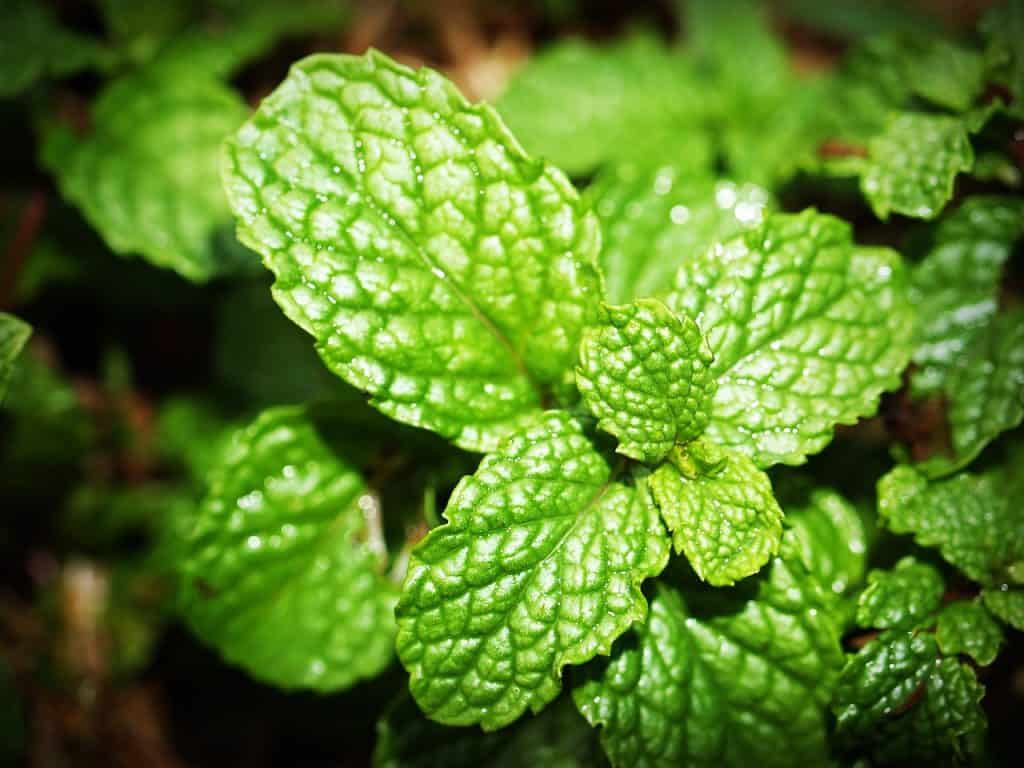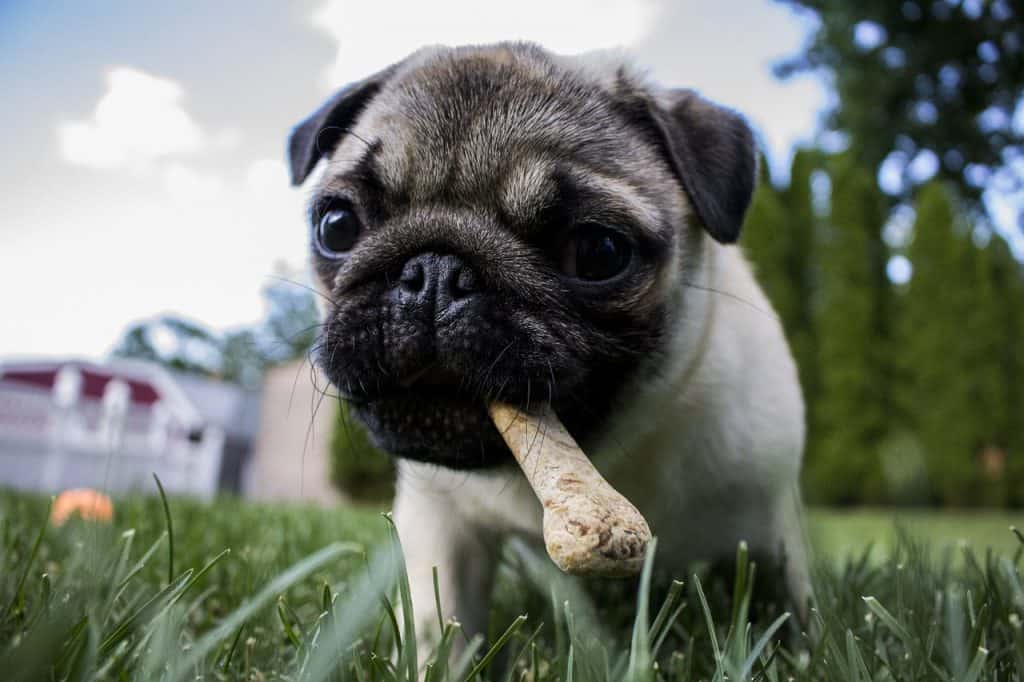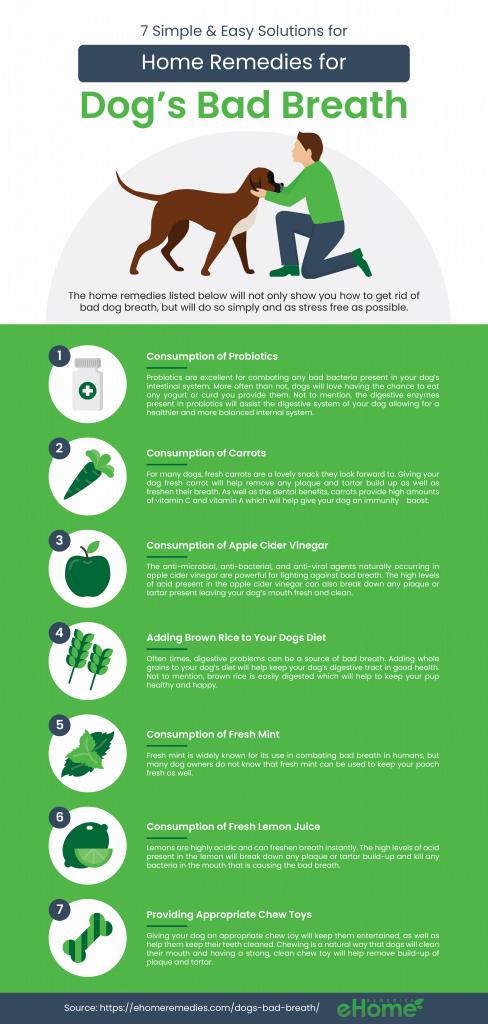All dog owners can attest to experiencing bad breath from their furry friends. The unpleasant odor can be not only stubborn but also seem like it is never-ending. If you have noticed your dog’s breath has suddenly taken a turn for the worse, without using the best breath freshener, you can easily solve the bad breath with home remedies for the dog’s bad breath.
Causes
Bad breath in dogs can be caused by several factors. Bad breath, or ‘halitosis’, is only noticed once it is smelled. Due to this, it can be quite hard to pinpoint the exact cause of the bad breath in your dog, yet there are many factors you should be aware of as a dog owner.
When your dog begins to have noticeably bad breath, it will be caused by an abnormal build-up of bacteria. The overload of bacteria can be located in the dog’s mouth, lungs, or intestinal tract and can be caused by several different things.
Some of the main causes of bad breath in dogs include:
- Dental or gum diseases (particularly seen in smaller breeds)
- Problems in the gastrointestinal tract
- Lack of hydration
- Improper diet
- Consumption of ‘smelly’ foods (dog foods featuring fish as the main ingredient, etc.)
- Development of plaque or tartar on the teeth
- Larger medical problems (kidney failure, liver infections or problems, respiratory system problems)
- Eating feces or garbage
- Lack of proper dental care
Signs and Symptoms
More often than not, the tell-tale sign of bad breath in dogs is simply smelling the offensive odor once it is present. However, there are a few other signs and symptoms that you should be aware of to identify a more serious condition.
Dogs that have bad breath that is caused by dental problems will show signs of:
- red gums
- sensitive and inflamed gums
- loose teeth
- calcium build ups
- visible plaque build-ups
- and/or bleeding gums.
Not to mention if your dog is chronically licking the anal region (which is a sign of anal sac impaction, tumors, infection, or abscesses), this will cause your dog’s breath to have an unpleasant odor.
A few other signs and symptoms of bad breath in dogs include:
- Aging dogs (bad breath will progressively get worse as the dog ages)
- Dogs who are suffering from cancer that originated in the oral or throat regions. (Any painful or necrotic oral masses that have formed will cause and/or contribute to bad breath)
- Small breeds of dogs (Terriers, Chihuahuas, etc.) and dogs that are classified as ‘brachycephalic breeds’ such as Bulldogs and/or Pugs. This is due to having their teeth closer together that is caused by the abnormal jaw and skull shape.
Regardless of what type of dog, the dog’s age, or gender, any breed of dog can suffer from halitosis at any point in their life. While there are certain warning signs of more serious conditions associated with halitosis, many times bad breath is just that, bad breath, which can quickly be eliminated.
Treatments
Once you have noticed that your dog’s breath stinks, you will want to stop the strong and unpleasant odor and even prevent it from returning. Herbal remedies are an easy and gentle solution to get rid of bad breath in your dog. The home remedies listed below will not only show you how to get rid of bad dog breath but will do so simply and as stress-free as possible.
1. Homemade Mouth Spray Made of Parsley
Fresh parsley is a lovely green herb that will add a zing to your dog’s diet as well as stop any present bacteria that are causing the bad breath. While there are several brands of dried parsley, it is best to use fresh due to the higher quality of bacteria-fighting agents.
Many times, you can chop up the fresh parsley to add it to your dog’s food, but if they are too picky to eat it, you can make a mouth spray.
Required Ingredients:
- One bunch of fresh parsley.
- Knife and chopping board.
- Medium-sized pot.
- Hot water.
- Clean spray bottle.
Process:
- Chop the fresh parsley finely.
- Add the chopped parsley to the pot of hot water.
- Allow the parsley to boil for a few minutes before removing it.
- Let the mixture cool before adding it to the spray bottle.
- Spray the homemade parsley spray directly into your dog’s mouth up to three times per day.
- Use the parsley mouth spray until your dog no longer has bad breath.
2. Cleaning the Water Bowl
A water bowl can be host to a wide variety of bacteria when it is left unclean for long periods. If your dog suddenly has bad breath, you should first clean their water bowl to eliminate this source as a possible cause of the bad breath in your dog.
Required Ingredients:
- Anti-bacterial dish soap.
- Clean sponge.
- Hot water.
Process:
- Empty your dog’s water bowl and rinse thoroughly.
- Add a few drops of the anti-bacterial dish soap to the sponge and gently scrub the entire water bowl.
- Rinse using hot water.
- Refill the bowl with clean, fresh water.
- Wash the water bowl daily and make it a part of your daily routine for cleanliness as well as preventing a hotspot for bacteria growth.
3. Probiotics
Required Ingredients:
- Fresh, plain yogurt or curd.
- Spoon.
Process:
- Add one heaping spoonful of yogurt or curd to your dog’s diet twice per day.
- If you have a large breed dog, you can add more depending on their weight.
- Follow this regiment for at least one week to help combat bad breath.
- To further prevent bad breath, you can continue this treatment daily to provide your dog with a healthy and well-balanced diet.
4. Carrots
For many dogs, fresh carrots are a lovely snack they look forward to. Giving your dog fresh carrots will help remove any plaque and tartar buildup as well as freshen their breath. As well to the dental benefits, carrots provide high amounts of vitamin C and vitamin A which will help give your dog an immunity boost.
Required Ingredients:
- Fresh whole carrots.
- Knife.
Process:
- Chop the ends of the carrot and cut the carrot into a slice that is appropriate for your dog’s size.
- Give them 2 slices per day for at least one week or continue with this home remedy to freshen their breath on the spot.
5. Apple Cider Vinegar
The anti-microbial, anti-bacterial, and anti-viral agents naturally occurring in apple cider vinegar are powerful for fighting against bad breath. The high levels of acid present in the apple cider vinegar can also break down any plaque or tartar present leaving your dog’s mouth fresh and clean.
Required Ingredients:
- ½ teaspoon of Apple Cider Vinegar.
- Freshwater.
Process:
- Add ½ teaspoon of Apple Cider Vinegar to the freshwater you place in their water bowl.
- Let the dog drink this mixture throughout the day.
- Each time you change the water, add another ½ teaspoon to the water bowl.
- Follow this regiment for at least a week.
- Continue to use it whenever your dog has bad breath.
6. Providing Appropriate Chew Toys
Giving your dog an appropriate chew toy will keep them entertained, as well as help them keep their teeth cleaned. Chewing is a natural way that dogs will clean their mouth and having a strong, clean chew toy will help remove the build-up of plaque and tartar.
Required Ingredients:
- Durable and strong appropriately sized chew toy.
Process:
- Give your dog the chew toy and let them chew on the toy for at least ten minutes at a time. Most times your dog will chew the toy until they have grown tired of chewing.
- Let your dog chew on a chew toy at least once per day to help keep their mouth clean and their breath fresh.
7. Adding Brown Rice to Your Dogs Diet
Oftentimes, digestive problems can be a source of bad breath. Adding whole grains to your dog’s diet will help keep your dog’s digestive tract in good health. Not to mention, brown rice is easily digested which will help to keep your pup healthy and happy.
Required Ingredients:
- Organic brown rice.
Process:
- Add ½ a cup of cooked brown rice to your dog’s daily diet.
- Continue this regiment for at least ten days (if you decide not to add it to your dog’s everyday diet)
8. Brushing Your Dog’s Teeth
Brushing your dog’s teeth is one remedy that can quickly and easily freshen your dog’s breath. If your dog can tolerate having a toothbrush in their mouth for a few minutes, brushing their teeth at home can be an easy solution for bad breath.
As a matter of fact, brushing your dog’s teeth is one of the best ways to maintain fresh breath and prevent plaque and tartar build-up from occurring. According to a 2008 study, careful plaque and calculus removal from the tooth crown, gingival sulcus, and root surfaces is essential for the prevention and control of Periodontitis.
Plaque removal can be accomplished by a combination of home care procedures that include mechanical and chemical plaque reduction techniques such as tooth brushing with dentifrices, dietary manipulation, and regular professional periodontal therapy.
Required Ingredients:
- Soft-bristled toothbrushes such as a kid’s toothbrush.
- Toothpaste is appropriate for use in dogs.
Process:
- Add a small amount of toothpaste (Do NOT use toothpaste containing fluoride as this can make your dog quite ill)
- Brush your dog’s teeth once per day, every other day to keep their breath fresh and their mouth clean.
9. Making Homemade Toothpaste for Dogs
As mentioned above, brushing your dog’s teeth will help keep their mouth clean and fresh. When you use homemade toothpaste made specifically for dogs, you will ensure they are not ingesting any unsafe ingredients.
Required Ingredients:
- 1 bouillon cube.
- 6 tablespoons of baking soda.
- 1 tablespoon of fresh parsley.
- ½ tablespoon of salt.
- 1 tablespoon of water.
- Small bowl.
Process:
- Add the water and the bouillon cube to the bowl and allow the bouillon cube to fully dissolve.
- Add the baking soda, salt, and parsley to the bowl and combine well.
- Once all the ingredients have been mixed well, you can add some to the toothbrush to brush your dog’s teeth. The amount used will vary depending on the size of your dog.
- Continue using this toothpaste to freshen your dog’s breath quickly and prevent the build-up of plaque and tartar.
10. Providing Ample Amounts of Drinking Water
Dehydration is one of the main causes of halitosis in dogs. This can easily be prevented by providing plenty of freshwaters for your dog to drink. Especially if you have multiple dogs, you should provide large amounts of fresh drinking water that can be accessed any time throughout the day.
Required Ingredients:
- 1-3 clean water bowls.
- Clean, cool, fresh water.
Process:
- Add the clean water to the water bowls.
- Place the water bowl(s) in high-traffic areas.
- Check the levels of the water frequently to ensure that your dog is drinking the water.
- Change the water often to ensure your dog is drinking clean and fresh water.
11. Giving Your Dog More Bones
Allowing your dog to chew bones, especially raw pork bones, will act as a natural toothbrush for your dog’s mouth. Ensure you are not giving your dog chicken bones as they can easily break and cause lacerations in your dog’s throat or stomach as well as causing your dog to choke.
Whenever you give your dog a bone, monitor them chewing the bone so they do not chew it too fast or begin to choke on the bone.
Required Ingredients:
- Raw pork bones of appropriate size for your dog.
Process:
- Give your dog a raw pork bone to chew on for at least ten minutes at a time.
- Allow your dog to chew the bone one to two times per day to keep their mouth fresh and clean.
12. Adjusting Your Dog’s Daily Food
Sometimes the source of your dog’s bad breath can come from their daily food. If you are feeding your dog food containing fish or liver, it can be a culprit causing the bad breath.
Changing your dog’s daily food can be difficult sometimes, but if you add some fresh veggies or fruits to their daily diet it can combat the halitosis present.
Required Ingredients:
- 1 fresh & sliced carrot.
- 1 sliced apple.
- 2 tablespoons of brown rice.
Process:
- Add the fresh carrot, apple slices, and brown rice to your dog’s daily food.
- Stir well and serve your dog.
- Continue this regiment two to three times per week or whenever you notice bad breath in your dog.
- If your dog enjoys eating these foods, you can continue adding this mixture to their everyday diet.
13. Consumption of Fresh Mint

Fresh mint is widely known for its use in combating bad breath in humans, but many dog owners do not know that fresh mint can be used to keep your pooch fresh as well.
Required Ingredients:
- One bunch of fresh mint.
Process:
- Tear the fresh mint into pieces and give a few directly to your dog.
- If your dog does not want to eat the mint, you can add a few sprigs of mint to their water bowl. The mint will infuse the water and give your dog a fresh zing.
- Mint can be consumed daily so if your dog eats or drinks the mint, you can give them a little each day to keep their breath clean and smelling great.
14. Consumption of Fresh Lemon Juice

Lemons are highly acidic and can freshen breath instantly. The high levels of acid present in the lemon will break down any plaque or tartar build-up and kill any bacteria in the mouth that is causing the bad breath.
Required Ingredients:
- 1 whole lemon, cut into wedges.
- Clean water.
Process:
- Add 1 lemon wedge to your dog’s water bowl when you change the water.
- Ensure that there are no seeds present in the bowl before offering them to your dog.
- Allow your dog to drink the lemon water at their leisure.
- Add the lemon water daily or every other day while you are noticing the bad breath.
15. Regular Vet Visits
One of the best ways for preventing and diagnose the causes of bad breath is through regular vet visits. A vet can easily and accurately identify any serious causes of bad breath and follow up with the appropriate treatment.
Vets can also perform oral check-ups and brush your dog’s teeth. This is especially helpful if your dog does not like to have their teeth brushed or they experience too much stress while their teeth are being brushed. Vets can safely brush the dog’s teeth by putting them under using a local anesthetic. It is recommended to professionally brush your dog’s teeth at least three times per year.
Infographic
These home remedies are easy to use and can provide instant freshness to your dog’s breath. They are gentle and more often than not, your dog will love the new addition to their daily life and even look forward to enjoying fresh breath.












